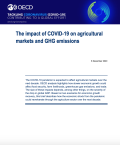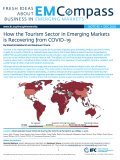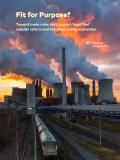


As global demand for material resources has increased dramatically in recent decades, rising international trade has become an essential means to overcome the constraints posed by local resource scarcity. While the contribution of international trade in fuelling economic expansion has long been recognised, its impact on the environment is more ambiguous. Trade can prove damaging to the environment by boosting overall resource production and use, shifting production to countries with less-stringent environmental legislation, and increasing energy use and pollution linked to transportation. Yet, when accompanied by appropriate measures, trade can enable and accelerate the transition to a greener, more circular economy – for instance, by facilitating access to green technologies and to other environmental goods and services.
